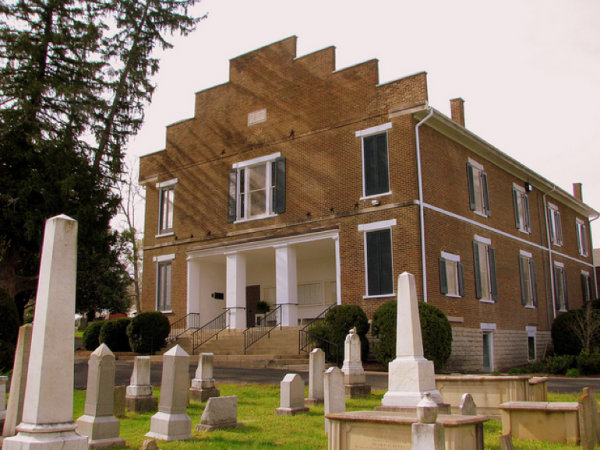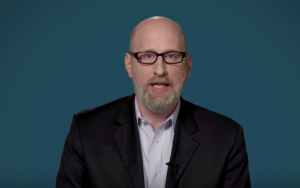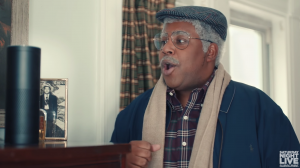 The Patheos Book Club, is now featuring the new book: Letters to a Future Church, an inspiring collection of 25 letters from some of the biggest names in the Christian landscape. To participate in this conversation, I was asked: If you could say anything to the Church right now, what would it be? Here’s my response:
The Patheos Book Club, is now featuring the new book: Letters to a Future Church, an inspiring collection of 25 letters from some of the biggest names in the Christian landscape. To participate in this conversation, I was asked: If you could say anything to the Church right now, what would it be? Here’s my response:
Dear Church,
In my life, I’ve been afraid to be a part of you. For example, when I was in college and wrangling with various political ideas I didn’t feel fit within acceptable political church thought. (I was wrong – your average suburban mega-church has more political diversity than Manhattan where I attended NYU.) Or, when I was was pregnant and some of your members asked, “Are you sure you’re not having twins?” and “You’re due in December? Really, but you’re already so big!” Or later when my husband was deployed to Iraq, and even casual greetings between the pews immobilized me. “How are you” people asked politely, but frankly, I lied when I responded with “just fine, thanks.” I was trying to avoid your niceties, which was easy enough between the sermon and Sunday School. But some of you, actually pursued me further. Some of you caught me during coffee hour and approached me with furrowed brows and low tones of voice. “Is David in a dangerous place?”
Later, your well-intentioned but overheard questions would reemerge in my children’s dreams. Consequently, “how are you” led to deception either way… whether I answered a reassuring “fine” because you wanted to hear it or because the kids needed to. I skipped church, but my plan backfired. Within hours, the phone rang off the hook, and I could tell my church friends half-expected to talk me down from a ledge.
“How are you?”
When I worked with youth at a rural Pentecostal church many years ago, we had a “Soul Repo Van” — a dilapidated vehicle we drove to retrieve church-skipping, troubled, teenagers. We showed up on doorsteps of trailers and dragged their hides to church, whether their hides wanted saving or not. A real sense of urgency propelled us — Satan wouldn’t keep our friends from the balm in Gilead. But Presbyterians don’t operate that way — if we skip church, people assume it has less to do with Satan than golf at the country club. Nevertheless, my church-skipping raised eyebrows, because the church vowed to keep an eye on our family in David’s absence.
The next week, I put on my best dress and steeled my nerves. After all, if David could survive military service, I could survive a Sunday 9:30 service.
“How’re ya doing?” a man asked me as soon as I walked in.
“Awful.”
He smiled and kindly left me alone.
I sat in front of the congregation in the choir loft and winked at my kids sitting on the hard, wooden pew several feet away… alone. A conspicuously vacant space beside them testified to how their little lives had changed too. However, a kind, no-nonsense lady reached over and gently pulled my son up when he wasn’t standing for the Scripture reading, just as David would’ve done had he been there.
It was Veteran’s Day and the service weakened my composure. Maybe it was how the Pastor Don explained to the kids in the “mini-sermon” we don’t worship the flag, but it represents values that enable us to worship God. Maybe it was the Revolutionary soldiers graves I passed as I entered the sanctuary, or the tired eyes of the WWII veterans who sat in the pews. But as the choir sang, “Fairest Lord Jesus,” my lips quivered.
I tried with every syllable to steady my voice, but one lyric pierced my soul.
“He makes the woeful heart to sing.”
I didn’t cry in the elegant way a leading lady might as she dabs her delicate tears with a starched linen handkerchief, but in the mildly disturbing way Tammy Faye might’ve had someone stole her mascara.
Soon, many congregants were crying too, the first sign of emotion since a visitor said “amen” in the summer of ’97.
In the media, church-goers are frequently portrayed as hypocritical, self-righteous rubes. But as a military spouse, I’m very grateful for you — for the busy-bodies who called when I missed sermons, for the woman who wouldn’t let my 6 year-old be disrespectful, for my jogging buddy who wouldn’t let me cancel our workout (“it’s only sprinkling!”), for my Small Group Leader who fixed my garage door, for a deacon who fixed my leaky dishwasher and pulled my son’s tooth on the same day, for the other deacons who promised David they’d bug the daylights out of me until he returned… I mean, to prayerfully watch out for me in his absence.
In one of my brief conversations with David, I complained church friends wouldn’t let me wallow in my sadness. “Christians are the worst people in the world,” he said, as both a good Presbyterian and a fan of Winston Churchill. “Except for everyone else.”
And he’s right. Friendships come and go, money’s made and lost, therapists hired and fired. But one thing will never change — in a time of need, a lady from church will show up uninvited on the doorstep with a casserole dish with her name written on the bottom. She’ll smile and say the soothing words every soul needs to hear: “Preheat the oven to 350 degrees and bake until it’s brown on top.” But before she leaves, she’ll add, “Just bring the dish back… at church on Sunday.”
That’s just how they operate.
Over the next year, I finally adjusted to my husband being gone, the kids celebrated their birthdays without him, and we sent letters detailing the day’s complaints and joys. And, yes, we attended church where someone invariably asked me how I was doing.
“Fine,” I said, like everyone else.
And guess what? Because of my church, it was actually true.
This letter is an adaptation from the book I co-authored with my husband David French called “Home and Away: A Story of Family in a Time of War.”
You can submit your own “letters to the church” for a chance to win an InterVarsity Press gift package and get your letter published at Patheos! For more information, click here.









